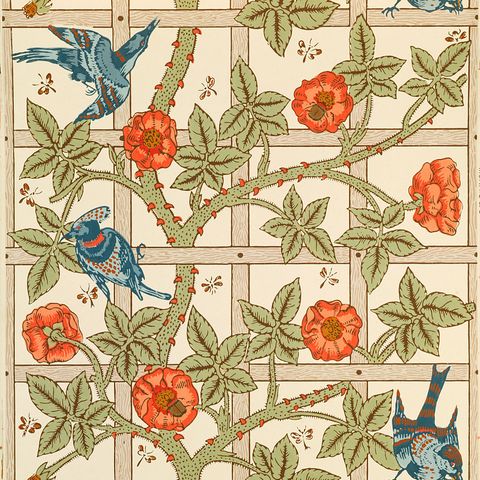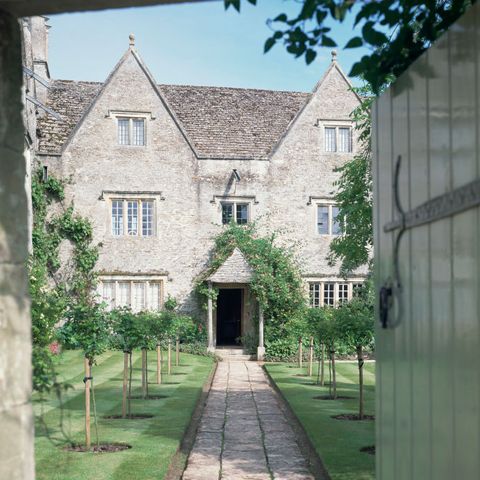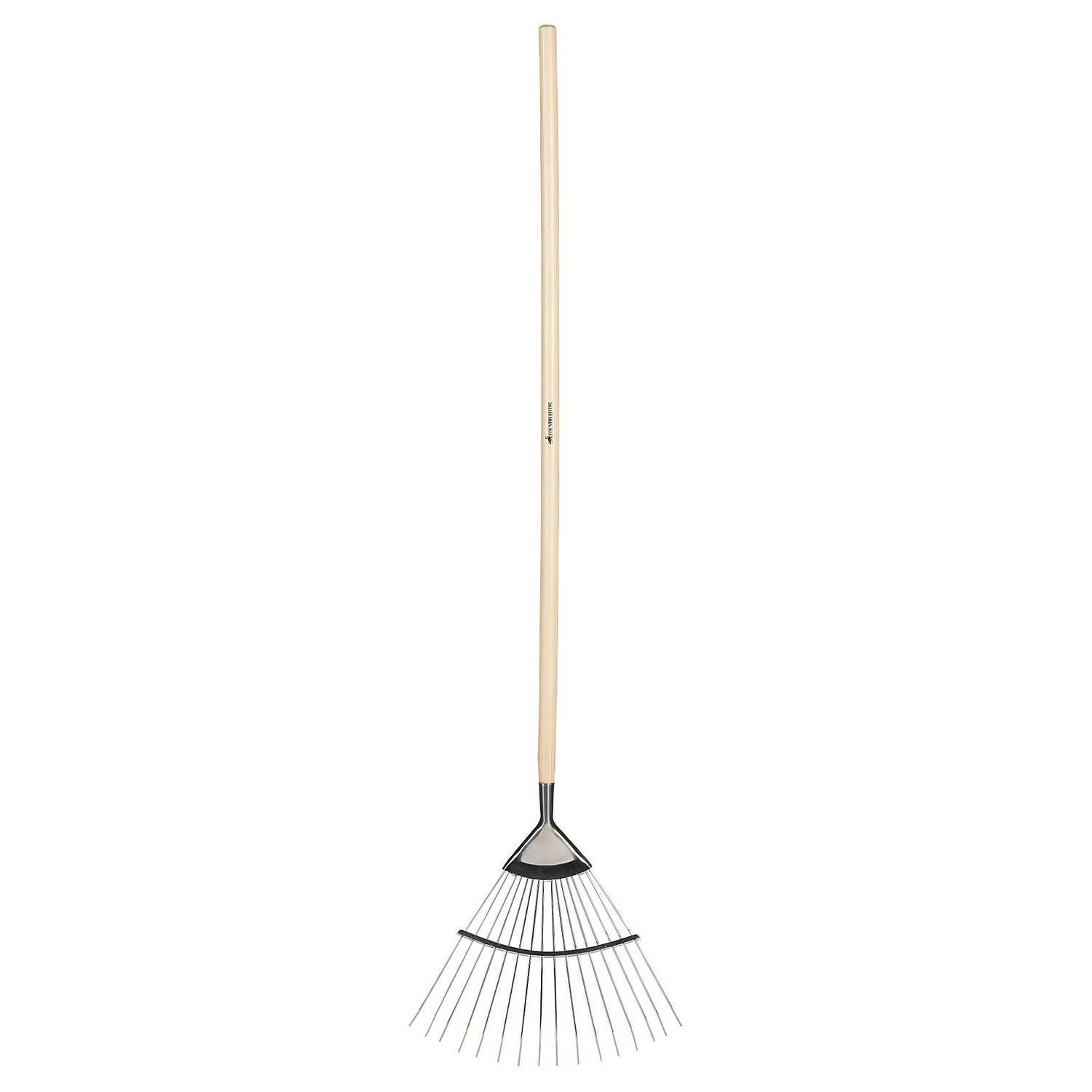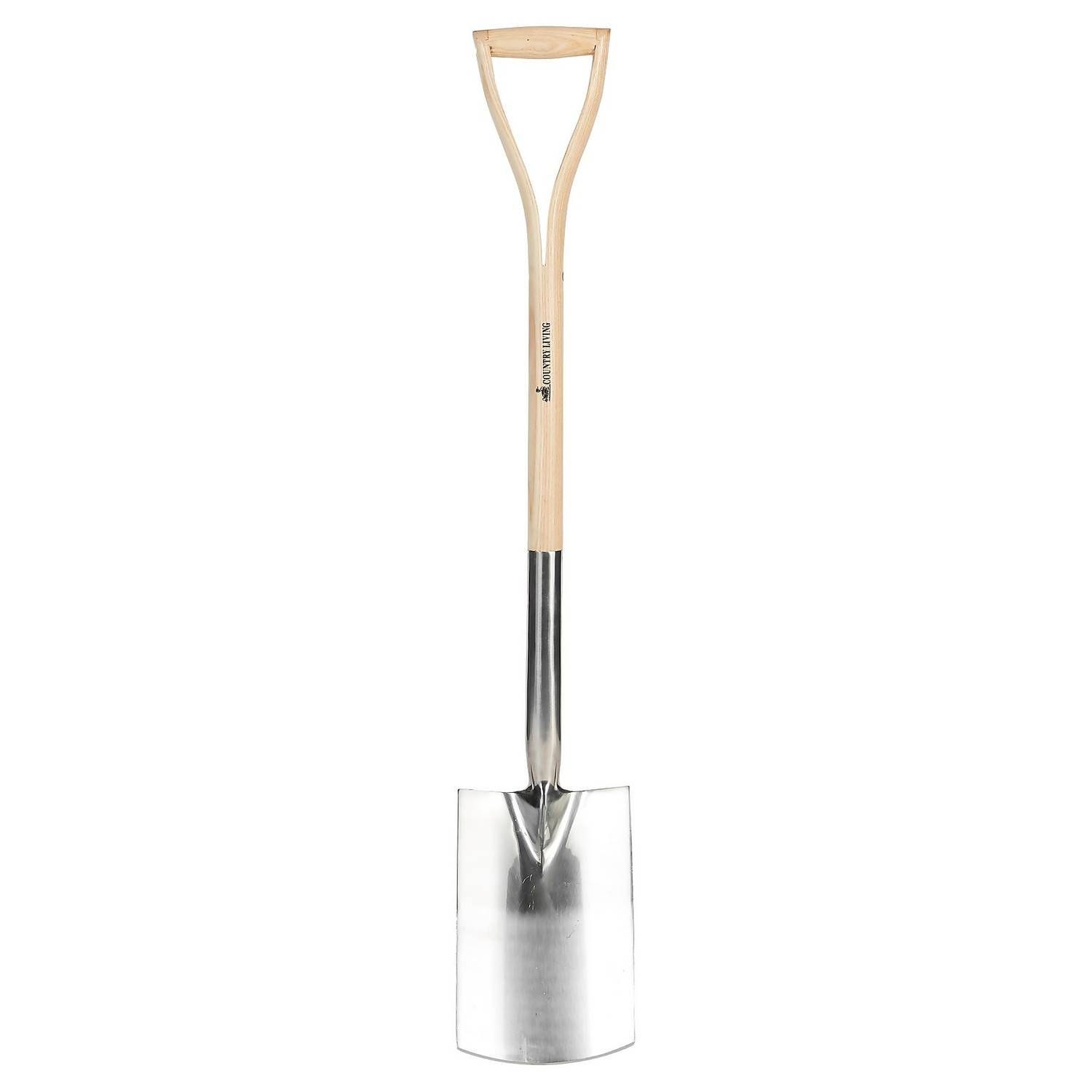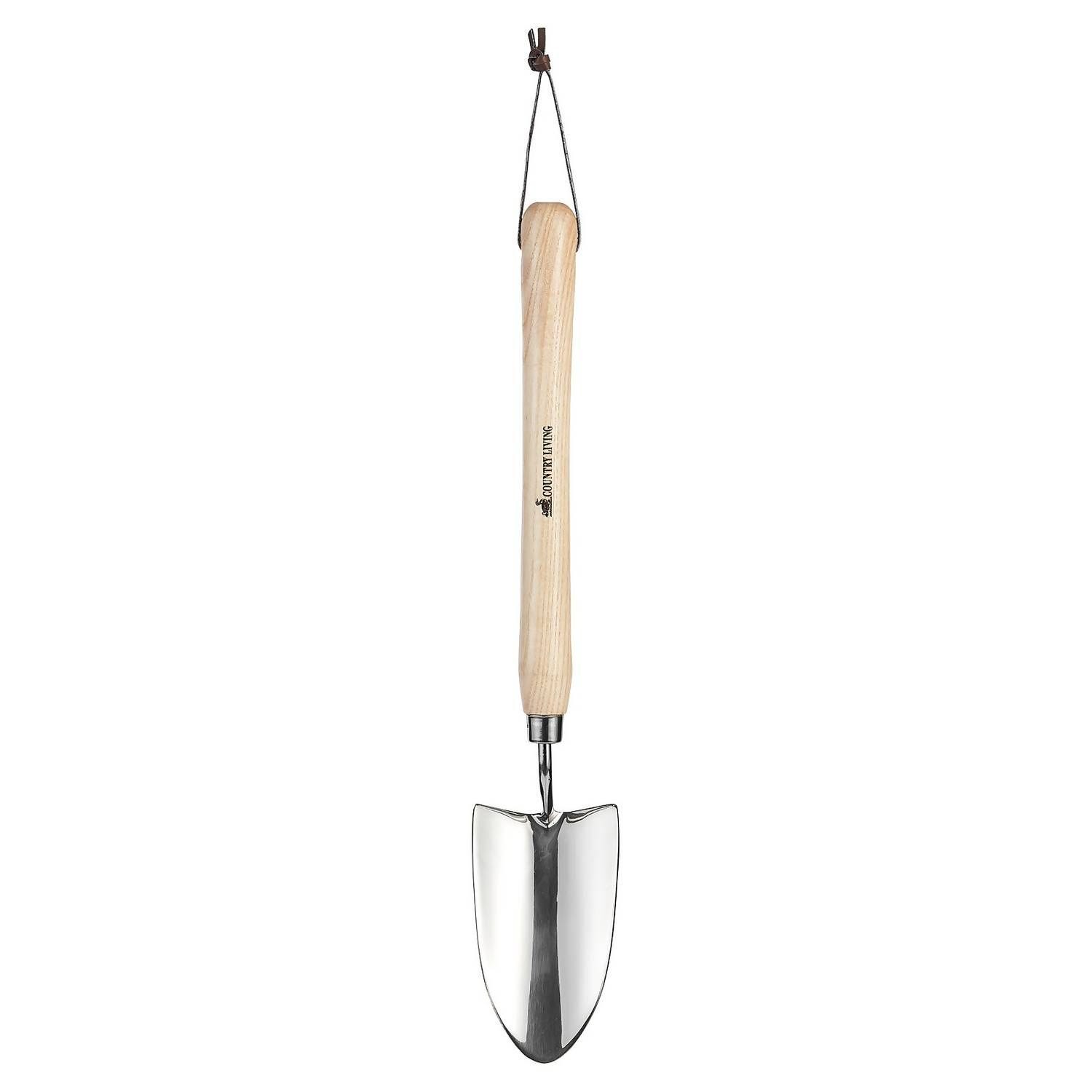Ruth Willmott’s Morris & Co garden at Chelsea Flower Show 2022
Ruth Willmott will bring her Morris & Co Show Garden to the Chelsea Flower Show 2022. The garden was originally supposed to appear at RHS Chelsea in 2020 but, due to the pandemic, was moved to this year. The Morris & Co garden will mark the 160th anniversary of the design company, Morris & Co., founded by textile designer, print-maker, poet and novelist William Morris, in 1860.
It’s fortuitous timing as William Morris prints – currently found everywhere from the catwalk to home furnishings – are enjoying a new vogue.
“Like Morris, a love of the natural world has always inspired my designs,” Ruth told Country Living. “So when I was thinking about designing a garden for the RHS Chelsea Flower Show, the two naturally came together and I approached Morris & Co. as a potential sponsor.”
With hundreds of Morris patterns to choose from, Ruth settled on two as the main inspiration for her garden design: Trellis and Willow Boughs.
Trellis was Williams Morris’s very first wallpaper design, in 1864, so it was an obvious one to choose, Ruth explained to CL. With a clear palette of red roses, greenery and blue birds, which were drawn by Morris’s collaborator and designer Philip Webb, it’s strikingly simple.
“When I first saw it, the layout for the garden immediately came to mind, inspired by the gridlines of the trellis which will be reflected in a series of interconnecting pathways around the garden.”
To reference the roses in the Trellis design, Ruth has chosen the spectacular winged thorn Rose (Rosa sericea subsp. omeiensis f. pteracantha). This has translucent red thorns, “which glow like rubies in the morning and evening light,” she says.
- The gridlines from Trellis are reflected in a series of interconnecting pathways around the garden
- ‘Winged thorn’ rose
- A central pavilion with screens laser-cut with the Willow Boughs pattern
- A sequence of water channels flowing throughout the garden
- Weeping, twisted and pollarded varieties of willow tree
- Hawthorn, known to be one of Morris’s favourite plants
- Planting chosen to provide food and habitat for birds
Design features: Morris & Co Chelsea Show Garden
Then, when Ruth visited Kelmscott Manor, which was once Morris’s Cotswold retreat, she was struck by the beautiful willow trees which inspired the father of the Arts and Crafts movement to create his famous Willow Boughs pattern, in 1887. According to her website, Ruth’s passion for trees informs all her garden design work; she takes time to think broadly and deeply about the role of trees in a garden or landscape.
This content is imported from Instagram. You may be able to find the same content in another format, or you may be able to find more information, at their web site.
In this very special RHS Chelsea garden, the delicate, soft, green leaves and cream background of the Willow Boughs pattern is referenced in the intricate metal pavilion. It features posts and screens layered with two contrasting colours, echoing the Morris print. The posts are laser-cut with the Willow Boughs pattern, in turn referencing the metal inlays of the wooden printing blocks used to make Morris’s wallpapers. The same pattern is also inlayed into a sequence of water channels flowing throughout the garden. The planting, meanwhile, features weeping, twisted and pollarded varieties of the willow tree.
Ruth told Country Living that other well-known Morris patterns are also referenced in the planting Ruth has chosen, including hawthorn foliage (from Morris’s 1870’s Jasmine design), plus acanthus and oakleaf hydrangea. The overall palette reflects his love of colour in a mix of earthy reds and apricot tones with accents of whites, blues and restful greens. Pattern has been purposefully used to set out the space, echoing rather than attempting to replicate Morris’s work.
One of the biggest challenges with this garden has been the planting and “ensuring it has a wonderful sense of repetition as it flows through and connects with each part of the garden, much like a wallpaper design,” Ruth told CL.
The structural engineering of the pavilion is also very complex, especially as her build team are attempting to construct the structure with as few fixtures as possible. Achieving the two-tone colouring is also a complicated process but Ruth feels that the end result will be absolutely worth it.
Alongside a love of the natural world (many of the plants have been chosen not just for their shape and shade, but because they are wildlife-friendly), simplicity and craft lay at the heart of everything William Morris stood for. These key themes run throughout Ruth’s garden bringing it together as a disciplined, but highly-creative whole.
What will happen to the garden and plants after RHS Chelsea?
After the show, elements of the Morris & Co garden will be relocated to several new community gardens on the Packington Estate regeneration project in Islington, in collaboration with the Arc Centre Gardening Collective. The newly redeveloped estate is located around the corner from the site where Morris’s prints were first produced more than 160-years-ago.
Who is Ruth Willmott?
Ruth owns her own garden design practice, Ruth Willmott Associates, in Chiswick, West London. She grew up in the village of Firbeck near Rotherham, South Yorkshire, and went on to graduate from both Nottingham Business School and the University of Cambridge.
Ruth admitted to Country Living that reconciling her own academic ability and creativity was always a challenge: “As an art student, my mother designed and painted samples of wallpaper to make ends meet and her love of art and design stayed with me.” In her mid-thirties, Ruth made a decisive career change and studied to become a garden designer at the English Garden School, graduating top of her class in 2009.
She set up her own design practice a year later, close to William Morris’s final home, Kelmscott House in Hammersmith, and the RHS experimental garden that preceded RHS Wisley. Her work takes in residential and commercial projects across the UK.
Ruth holds a number of Chelsea accolades already, including a Silver Medal in 2012, a Gold Medal in 2013, a Silver-Gilt in 2015 and again in 2017.
This content is created and maintained by a third party, and imported onto this page to help users provide their email addresses. You may be able to find more information about this and similar content at piano.io

